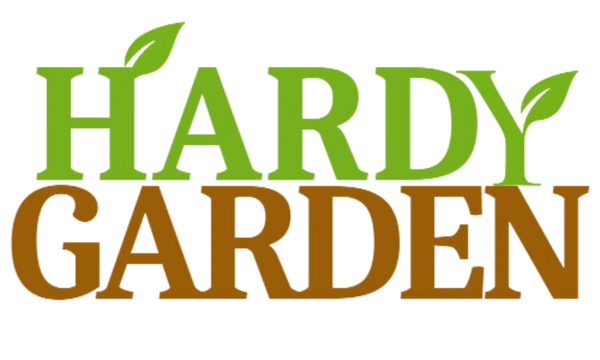
What Is Composting and What Are Its Advantages?
Share
Embracing a greener, more sustainable lifestyle starts with small yet powerful changes—like composting. What Is Composting and What Are Its Advantages? Simply put, composting is the natural process of recycling organic waste into nutrient-rich soil, benefiting both your garden and the environment. By transforming kitchen scraps and yard waste into compost, you reduce landfill waste, enrich the soil, and promote healthier plant growth.
Join us as we explore the art of composting—a simple, eco-friendly solution that nurtures your garden while making a positive impact on the planet!
Composting and Its Advantages?
Composting is the biological decomposition of organic matter, such as food scraps, leaves, and garden waste, into a dark, crumbly, and nutrient-rich material called compost. This process is driven by microorganisms, fungi, and beneficial insects that break down waste over time. There are different methods of composting, including:
- Aerobic Composting – Uses oxygen to break down materials quickly.
- Anaerobic Composting – Decomposes waste in low-oxygen environments, producing methane gas.
- Vermicomposting – Uses worms to accelerate decomposition and produce high-quality compost.
Regardless of the method, composting is a simple yet effective way to manage organic waste while creating a valuable resource for gardening.

Advantages of Composting
1. Improves Soil Health
Compost enriches the soil with essential nutrients and beneficial microbes, leading to healthier plants and improved growth. It also enhances soil structure, making it more fertile and resilient.
2. Reduces Household Waste
Composting diverts a large portion of organic waste from landfills, significantly cutting down on household garbage. This simple practice helps reduce overall waste production and supports a cleaner environment.
3. Cuts Down on Greenhouse Gas Emissions
Organic waste in landfills generates methane, a potent greenhouse gas. By composting, you help minimize these harmful emissions and contribute to a healthier planet.
4. Encourages Sustainable Gardening
Compost serves as a natural, chemical-free alternative to synthetic fertilizers. This promotes environmentally friendly gardening while reducing reliance on artificial soil enhancers.
5. Enhances Plant Growth
Healthy compost improves soil structure, boosts moisture retention, and increases nutrient availability. These benefits create the ideal growing conditions for strong, vibrant plants.
6. Saves Money
Using compost reduces the need for store-bought fertilizers, soil conditioners, and mulch. It’s a cost-effective way to maintain a thriving garden while cutting gardening expenses.
7. Promotes Biodiversity
Compost supports a rich ecosystem of beneficial insects, earthworms, and microorganisms. These organisms contribute to soil health, making your garden more balanced and sustainable.
8. Reduces Soil Erosion
By strengthening soil structure, compost helps prevent erosion and runoff. This keeps valuable topsoil in place and protects plant roots from washing away.
9. Supports Water Conservation
Compost improves the soil’s ability to retain moisture, reducing the need for frequent watering. This helps conserve water while keeping plants hydrated and healthy.
10. Encourages an Eco-Friendly Lifestyle
Incorporating composting into your routine fosters sustainable living habits. It’s a simple yet impactful way to reduce waste and contribute to a greener future.

How to Start Composting
- Choose a Composting Method: Pick a method that fits your space and needs, such as a compost bin, worm composting (vermicomposting), or a compost tumbler.
- Select a Composting Bin or Container: Choose a bin with good aeration, drainage, and insulation. You can use a DIY bin or buy a ready-made composting system.
- Collect Compostable Materials: Gather a mix of green (nitrogen-rich) materials like fruit and vegetable scraps and brown (carbon-rich) materials like dry leaves and cardboard.
- Layer and Turn the Compost Pile: Layer green and brown materials, and turn the pile regularly to improve airflow and speed up decomposition.
- Monitor and Adjust: Keep an eye on moisture and temperature. Compost should be damp (like a wrung-out sponge) and warm to ensure efficient breakdown.
Materials Suitable for Composting
Green Materials
Green materials add nitrogen to your compost and help speed up decomposition. These include fruit peels, vegetable trimmings, coffee grounds, grass clippings, and plant trimmings.
Brown Materials
Brown materials provide carbon, which balances your compost and keeps it from smelling. Good options include dry leaves, straw, cardboard, twigs and branches, and newspaper.

Items to Avoid
Some items should be avoided in composting, as they can attract pests or cause contamination. Meat and dairy products, diseased plants, pet waste, oily or greasy items, and inorganic materials should never be added.
How to Use Compost
Incorporate into Soil: Mix compost thoroughly into your garden soil to enhance fertility and structure. This helps provide essential nutrients to plants and improves the soil's ability to retain water, promoting overall plant health.
Top-Dress Plants: Gently apply a layer of compost around the base of your plants, commonly known as top-dressing. This method enriches the soil around existing plants without disturbing their roots, supplying a slow release of nutrients over time.
Mulching: Utilize compost as a mulch layer around plants to help control weeds, regulate soil temperature, and retain moisture. Mulching with compost also contributes to the gradual release of nutrients into the soil.
Seed Starting Mix: Blend compost with other growing mediums to create a nutrient-rich seed starting mix. The compost provides young plants with essential nutrients as they germinate and begin their growth.
Container Gardening: Incorporate compost into potting mixes for container gardening. The organic matter in compost improves the structure and water-holding capacity of the mix, creating an optimal environment for container plants.
Conclusion
Composting is a fantastic way to turn kitchen and yard waste into nutrient-rich soil. It's a simple process that benefits both the environment and your garden.
By composting, you not only reduce waste but also produce a valuable resource for your plants. Start small, play around with it, and see the magic of composting transform your waste into a green and healthy future.

